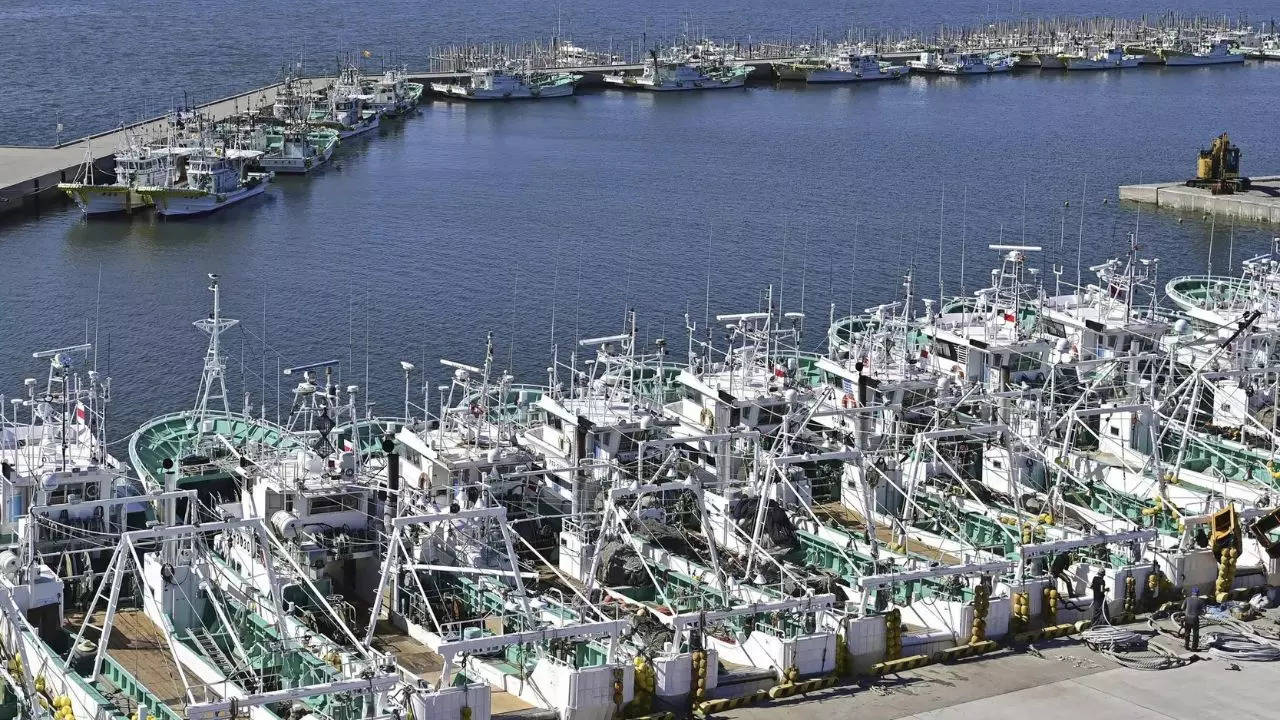World
Fukushima Daiichi nuclear plant: Why Japan’s ‘disaster management’ is a global concern

[ad_1]
Japan’s PM Fumio Kishida has given a go-ahead to start releasing treated and diluted radioactive wastewater from the Fukushima Daiichi nuclear plant into the Pacific Ocean from tomorrow – a controversial yet essential step in years of work towards shutting down the facility 12 years after a meltdown disaster.
The disaster
Hit by a magnitude-9.0 earthquake and an ensuing tsunami in 2011, the plant suffered core meltdowns that released radiation, resulting in a level-7 nuclear accident, the highest on the International Nuclear and Radiological Event Scale.
Water was used to cool off the crippled plant’s reactors after the incident. Then, over the years, the site has also witnessed groundwater accumulation and rainwater seeping in.
Around 100,000 litres of contaminated water is collected at the site in northeast Japan everyday. Some 1.34 million tonnes of water – which can fill almost 540 Olympic pools – is now stored in steel containers at the site, which has run out of space.
Treatment
The plant operator, Tokyo Electric Power Company, says that a special filtering system was engaged, which has reduced radioactivity levels of the water to 1,500 becquerels per litre (Bq/L), far below the national safety standard of 60,000 Bq/L.
While the Japanese government has spent months trying to win over spectics at home and abroad, with study tours and live-stream videos, the International Atomic Energy Agency (IAEA) gave its final approval last month to the plan.
Concerns
Greenpeace on Tuesday said that the technology used to filter the water is flawed and that the IAEA “completely ignored the highly radioactive fuel debris that melted down which continues every day to contaminate groundwater”.
The release process – which is likely to take years to complete – has also hit opposition in Japan itself, in particular from a fishing industry that fears its exports could plummet as consumers and governments shun Japanese seafood.
China has accused Japan of treating the Pacific like a “sewer”. Large number of South Koreans are alarmed and have been staging demonstrations – and even panic-buying sea salt.
The disaster
Hit by a magnitude-9.0 earthquake and an ensuing tsunami in 2011, the plant suffered core meltdowns that released radiation, resulting in a level-7 nuclear accident, the highest on the International Nuclear and Radiological Event Scale.
Water was used to cool off the crippled plant’s reactors after the incident. Then, over the years, the site has also witnessed groundwater accumulation and rainwater seeping in.
Around 100,000 litres of contaminated water is collected at the site in northeast Japan everyday. Some 1.34 million tonnes of water – which can fill almost 540 Olympic pools – is now stored in steel containers at the site, which has run out of space.
Treatment
The plant operator, Tokyo Electric Power Company, says that a special filtering system was engaged, which has reduced radioactivity levels of the water to 1,500 becquerels per litre (Bq/L), far below the national safety standard of 60,000 Bq/L.
While the Japanese government has spent months trying to win over spectics at home and abroad, with study tours and live-stream videos, the International Atomic Energy Agency (IAEA) gave its final approval last month to the plan.
Concerns
Greenpeace on Tuesday said that the technology used to filter the water is flawed and that the IAEA “completely ignored the highly radioactive fuel debris that melted down which continues every day to contaminate groundwater”.
The release process – which is likely to take years to complete – has also hit opposition in Japan itself, in particular from a fishing industry that fears its exports could plummet as consumers and governments shun Japanese seafood.
China has accused Japan of treating the Pacific like a “sewer”. Large number of South Koreans are alarmed and have been staging demonstrations – and even panic-buying sea salt.
#Fukushima #Daiichi #nuclear #plant #Japans #disaster #management #global #concern






